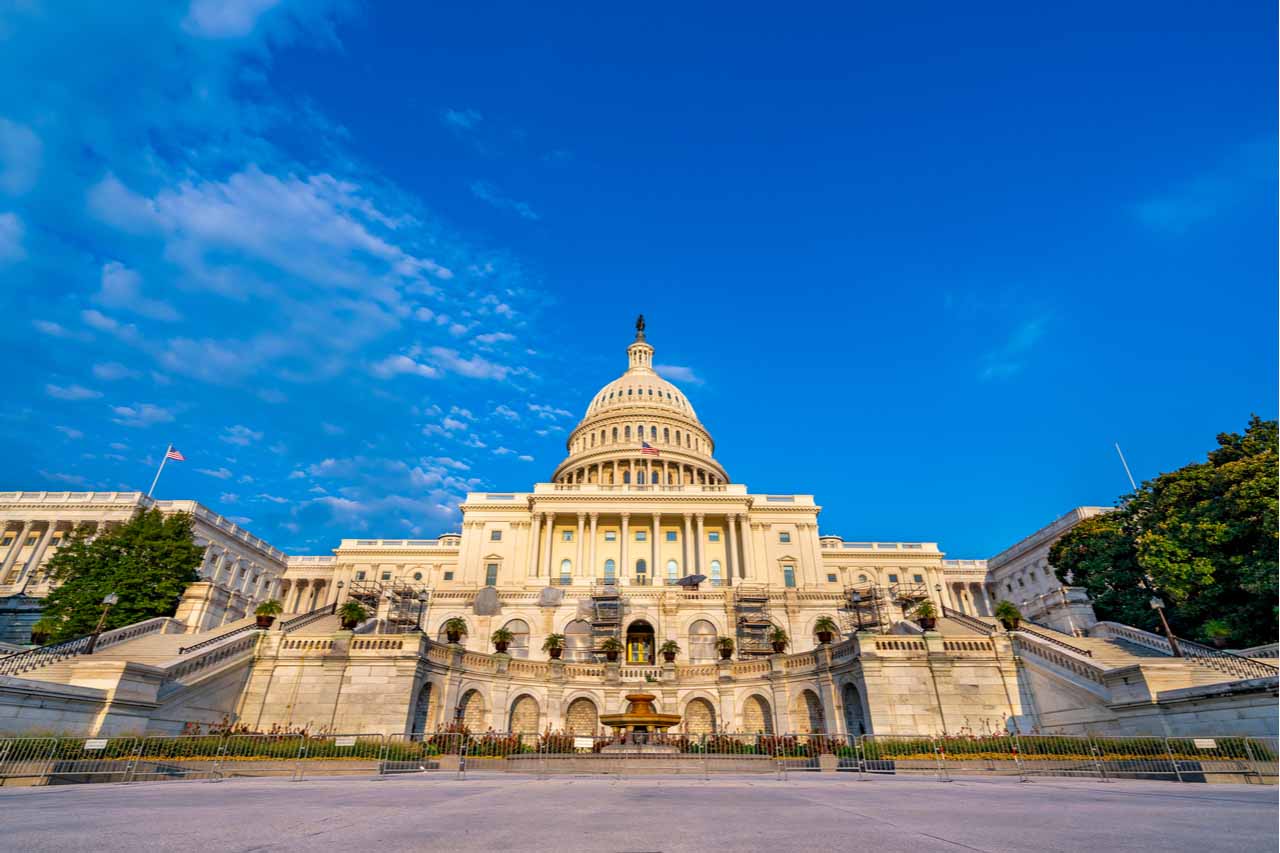
The $2 trillion Coronavirus Aid, Relief, and Economic Security (CARES) Act includes $377 billion for small businesses. | ItzaVU/Shutterstock
The bipartisan stimulus bill signed into law by President Trump last week includes hundreds of billions of dollars in assistance to companies with fewer than 500 employees.
The $2 trillion Coronavirus Aid, Relief, and Economic Security (CARES) Act includes $377 billion for small businesses, according to The New York Times. The money would fund COVID-19-related assistance programs administered by the U.S. Small Business Administration (SBA).
“There are terrific amounts of money being being provided for small businesses and large businesses through this for them to take advantage of, stay operational, and to pay employees and to keep them in the economy,” Billy Johnson, chief lobbyist for the Institute of Scrap Recycling Industries (ISRI), explained in an ISRI podcast immediately after Congress passed the CARES Act.
Small-business help
The SBA’s Paycheck Protection Program offers loans of up to $10 million to small businesses to pay workers. Loan payments are deferred for six months, and if the small business maintains its workforce, the SBA will forgive the portion of the loan proceeds used to cover the first eight weeks of payroll and certain other expenses. Eligible businesses include those with 500 or fewer employees (eligibility can be extended to larger companies in certain industries, according to the SBA).
The loans are immediately available through more than 800 SBA-certified lenders, Johnson said. “Most all banks that our members are dealing with are most likely Small Business Administration-certified banks and lenders, so it’s going back to them,” Johnson said. “What the SBA is doing is they’re backstopping those loans through this program.”
Additionally, the SBA has established the COVID-19 Economic Injury Disaster Loan program, which provides low-interest loans to small businesses of up to $2 million. To help businesses struggling with temporary revenue losses, the SBA within three days will provide a $10,000 advance on the loan. The advance will not have to be repaid but the rest will. According to ISRI, the CARES Act expanded the eligibility for economic injury disaster loans and it gave the SBA more flexibility to process smaller loans.
The SBA also launched what it calls the Express Bridge Loan Pilot Program, which allows small businesses to access up to $25,000 faster and with less paperwork than other loan programs, according to the SBA. If a business needs cash while waiting for a disaster loan to be approved, they may qualify for an Express Bridge Loan, which would be repaid by proceeds from the economic injury disaster loan once it’s approved.
The agency is also providing special debt relief to small businesses that borrow through the SBA’s pre-coronavirus 7(a) loan program.
Additionally, Johnson said the CARES Act increased the cap for loans under the SBA’s Express Loan program from $350,000 to $1 million. The program, which offers quicker access to cash than through the standard 7(a) program, provides borrowers with revolving lines of credit for working capital.
The above programs apply only to small businesses. The SBA offers an online tool that can be used to determine whether a particular business would be considered “small.”
The new programs already appear to have drawn overwhelming interest from businesses. The New York Times reports the SBA’s website has been overloaded at times, and that people who have been able to complete loan applications have been told the applications will take at least three weeks to process.
Support for big companies and unemployed individuals
In addition to supporting businesses with fewer than 500 employees, the CARES Act provides assistance to individual taxpayers, unemployed workers and large companies.
A New York Times Q&A provides more details on the direct payments to individuals and the broadening of eligibility for unemployment insurance.
Johnson noted that for larger businesses, the CARES Act provides $500 billion for loans, loan guarantees and other investments, Johnson explained. That program, the Treasury Department’s Exchange Stabilization Fund, requires loans to be used to retain at least 90% of the company’s workforce. It prohibits spending the money on stock buybacks.
A version of this story appeared in Resource Recycling on March 31.
More stories about legislation
- NY legislative session ends, again without EPR
- Both coasts see DRS program changes
- UN member countries bring focus to plastic treaty



